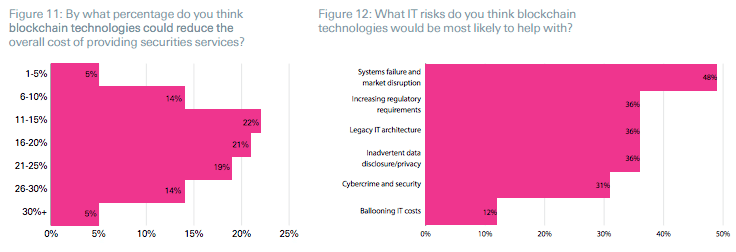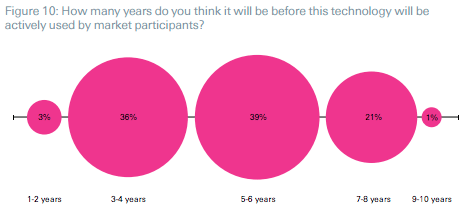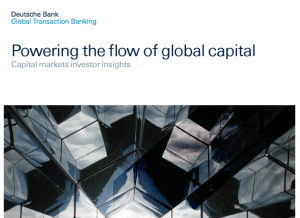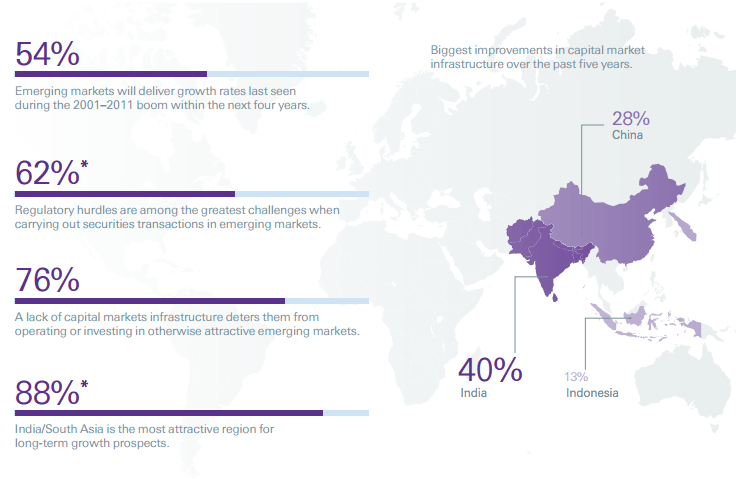
87% of Financial Market Participants Say Blockchain Will Disrupt The Industry
by Fintechnews Switzerland November 18, 2016A survey conducted by Deutsche Bank and FT Remark, the research arm of the Financial Times, found that a staggering majority (87%) of financial market participants are confident that blockchain technology will disrupt the settlement model for securities.
62% believe that the introduction of distributed ledger technology will produce substantial savings ranging from 11% to 25%. Almost half say that it will help the industry cope with the risk of system failure and market disruption.

“Blockchain may completely change the settlement model for securities processing, creating a utility around securities processing and cash management,” commented David Rhydderch, Deutsche Bank’s head of alternative fund services.
“The entire back end would become a far more efficient, far less costly, more accurate and less risk-prone function. This has an obvious knock-on effect on the cost of service provision. In the administration space, blockchain may not be quite the disruptor. It’s more in the functional utility elements within the securities processing settlement chain. In that context, it may be totally revolutionary.”
Respondents believe that blockchain technology will be widely used within the next three to six years (75%).

The industry is still struggling to figure out how to implement the technology in the current web of legacy infrastructure, the report says, noting that market participants are trying to determine how it can be deployed in a way that works, given ongoing data protection and security concerns.
The document a previous report released earlier this year by Euroclear and Oliver Wyman which praised the merits of blockchain technology in capital markets and highlighted the potential of the technology to provide a new approach to data management and be a solution to many of the efficiencies afflicting capital markets.
 The Deutsche Bank report, titled “Powering the flow of global capital: Capital markets investor insights,” highlights the key findings of a survey of 200 market participants to examine what is driving today’s capital market.
The Deutsche Bank report, titled “Powering the flow of global capital: Capital markets investor insights,” highlights the key findings of a survey of 200 market participants to examine what is driving today’s capital market.
The research found that regulation, new technologies and emerging markets are key issues impacting strategic thinking. These three areas have caused the vast majority of respondents to partially or completely reshape their operating models, buying behavior and capital/fund allocations over the past two years.
“These three themes are fundamentally redefining the securities services landscape and the knock-on effects will impact the business models of many capital markets participants,” according to Satvinder Singh, head of global securities services and head of GTB EMEA ex Germany.
Notably, a majority of market participants are convinced of a revival of emerging markets. 54% believe emerging markets will deliver growth rates close to those seen during the 2001-2011 boom, noting that India and South Asia will likely be the most attractive region (88%).

China, Indonesia, Russia and Turkey in particular are ranked highest for their capital market infrastructure. Respondents said that China and India have made the greatest infrastructure improvements during the last five years.
That being said, investing in emerging markets remains risky and some investors are hesitant.
Respondents ranked regulatory hurdles as their greatest or second greatest challenge (62%) when carrying out securities transactions in emerging markets, followed by political interference (53%) and instability as a challenge, and unreliable capital markets infrastructure (40%).
Featured image: Stock market chart by bluebay via Shutterstock.com.





